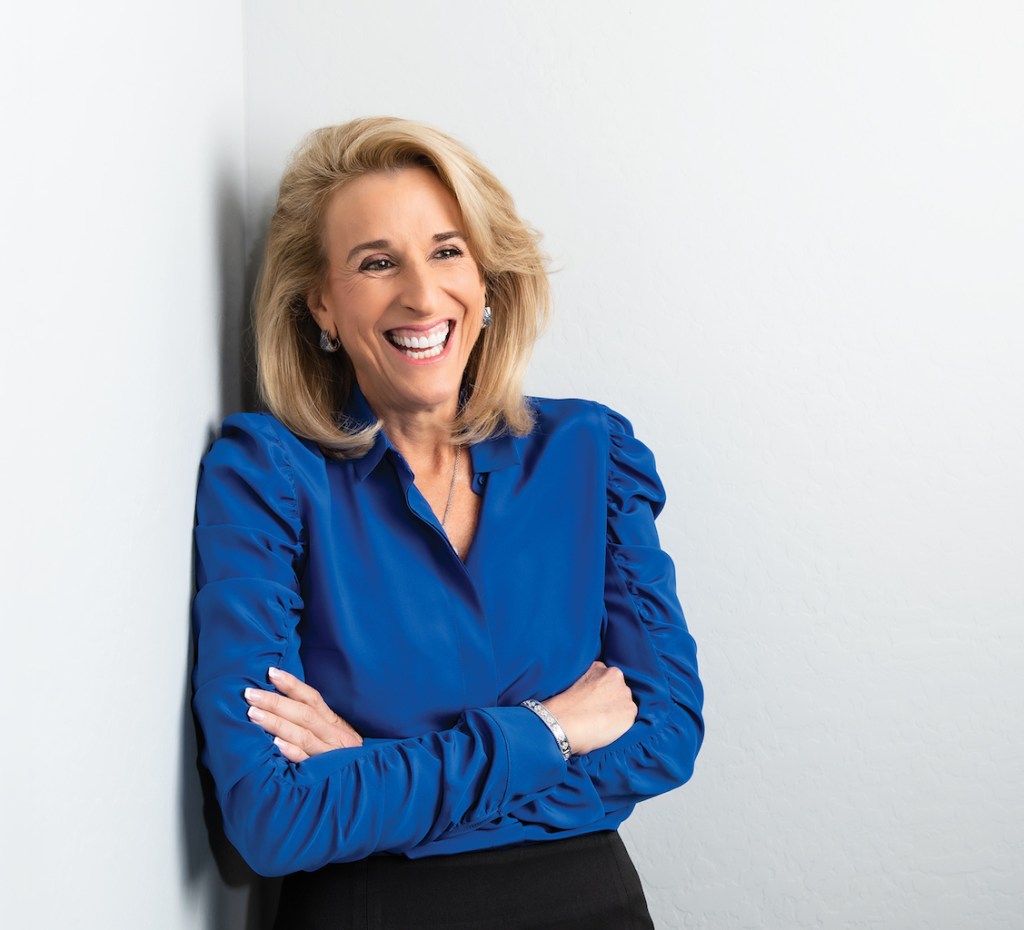On March 24, about four weeks after our meeting in New York to share word that Taylor Morrison would be BUILDER’s 2020 Builder of The Year, chairman and ceo Sheryl Palmer and I spoke, as the novel coronavirus pandemic coursed an all-points global pathway of devastation, and brought with it economic upheaval.
Home building and residential real estate, like all of the world’s business sectors, pivoted into a limbo of disruption, the duration and magnitude of which remain unclear. What is known is that the crisis calls for leaders of companies–public, private, large, small, local and national–to step up. They need to beat tough odds on multiple, equally urgent matters–the health and safety of people in the workforce, the continuity of leadership, the capacity to meet near-term expenses, the securing of workflows and supply chains, to bring immediate cohesion to the sudden new home-bound/home-based network of team members, to ignite cultural unity, and, all the while, face the music on the capital investment side of things.
Sheryl, graciously agreed to go on the record for what we believe shines as an example for others, as an honest, brave, realistic, and motivating framework for home building community members. Two critical take-aways: One is Palmer’s unshakable belief in the power of her organization’s–and our society’s–shared purpose in prevailing. The other, simply, gratitude for the underlying meaning of what builders do for a living. Here, verbatim, are a few of the high-level takes from that conversation.
Leading:
[SP] How do I think about life and Taylor Morrison today, tomorrow, I have to start with the fundamentals. None of us have ever been through something like this. But we’ve been through crises, which do alter the way people process information. So, I have to start with taking a step back and appreciating the impact this has so that we can plan for successful communication as we talk about our everyday, our tomorrow’s priorities, how to make sure the company’s okay six months from now, six years from today.
In some areas of leadership for me, I can double-down on instincts. On others, I’m having to change completely in these times. It’s not an area you want practice in. But, when I think about the financial crisis, and I think about other crises we’ve had–whether it be market meltdowns, one-by-one, natural disasters, it seems like we’ve had all of it.
With the financial crisis and some of the emotional pieces that go along with the natural disasters we’ve had, it’s about melding of both playbooks. That’s for lack of a better description, there’s not a playbook that guides us here. We’re writing it as we go.
Priorities:
[SP] We went into a ‘command center’ task force, and started putting a plan in place. First, you protect the people. Health and safety’s always been a mainstay of our organization.That’s where I say I can double-down. Swift, very thoughtful, deliberate, and consistent communications. That’s so critical in times like this.
We’ve talked about our ‘huddles,’ that we started last August. I can’t imagine a greater blessing, to have had that in place in our organization. People are connected. All the principals are in place. Day 1. The phone numbers are posted on our intranet, because some people were calling into huddles everyday remotely before any of this happened.
I’m now doing a company-wide huddle one day a week. Our division presidents, instead of doing it one day a week, are doing it every day. The level of connectivity we have as an organization is unbelievable in what it’s able to do with our workforce that’s home. That’s the piece that, as people go away, and you can’t have that eye to eye contact, how do you make sure that level of understanding is there, and connectivity.
You have the immediate issues that you have to resolve in real-time. Then you start planning for the range of outcomes that we can recognize over the next many months. You break apart every piece of the business.
If you look at the journey this company’s been on, it’s been a journey of evolution, of change. If there’s one thing we’ve had constant—perhaps more than any company because of the trajectory and the number of acquisitions we’ve done – is a workforce that’s used to change, to pivoting, and thinking, and very fluid and adaptable. That’s my friend today.
Culture:
[SP] The bottom line is this. The level of resolve, and knowledge, and passion, and selflessness, and grit I’m seeing in this business today, is unbelievable. I was thinking about, how do I describe it? It’s maybe my weird way of thinking. But the best I came up with is, you know when you have—and maybe because it’s so personal for me—when you’ve had an unexpected health scare. You appreciate how important it is to take care of yourself. Because in the moment that you actually need to pull on your health, it might be too late to make that change. You can’t start working on the hearts and minds and the culture of people when something like this happens. It’s too late. The deposits that we have in our savings account of people, with people, with trust, and fight, and dedication, to our company, I believe that it’s a match because of the culture that we have, for years, continued to build on. What that allows is for people to respond differently because it’s not just relying on survival instincts. It’s relying on the selflessness, on ‘we built this company. It’s ours. It’s personal. And we’re going to see it through.’
A message to the community:
[SP] Leaders need, first of all, to be present. That’s a whole different thing these days. You’re present, and you can’t see people. It’s being present, changing what ‘present’ looks like.
People have to know when they’re going to hear from you. That’s what helps give them a sense of peace-of-mind. I might not have the answers today, but today’s Wednesday, and I know Friday, I’m going to get more answers. I can get a kind of calmness about me. Being present, transparent, honest, clear, concise, with the good news and the bad news. If I have those deposits in my bank account, I can deliver those difficult messages, saying that there are things that we know we’re going to do, and there are things that aren’t going to be easy decisions.
People understand that we’re making life decisions. No matter how large your workforce is, nothing about that communication can be generic. It has to be people knowing that the news is coming to them as quick as you can. Part of it is recognizing that people’s process in these times moves differently, and have different pain points, and so, it’s [critical] how we communicate. People are going to hang on to every word.
What’s Important Now?
[SP] First and foremost, it’s the health and safety of team members and customers. That’s got to be where we start. Once we’ve done everything possible on that front, it’s about protecting the company’s balance sheet; controlling the things you can control. This isn’t about how much money you can make; this is about making sure that the company is in the right condition to weather the storm, no matter what it is. Controlling everything we can. Evaluating every dollar that goes out the door.
And, once again, communication. I don’t assume the workforce hears everything you say. They have their own personal issues that filter what they can hear. So, at a very concrete and constant level, we have to think about how to message, how to reach their hearts and minds, how to get the proper repetition. We have to think about how to have the right people talking to them so that the credibility is there. We have to make sure that those people as leaders – this is so important to me – that our leaders stand up at a level they never have before. I think we have great leaders, and I think that the level of empathy, that they have in their listening, and that they have an open mindset that allows us as an organization to be vulnerable and learn in a time like this.
Because, no one’s got this one down, right? We’re going to get new facts every day, and the [point becomes] so that we are as prepared as leaders to take that information and then make the best improved decisions we can.
Silver Lining?
[SP] As a leader, you are always thinking about new things, things that you know are right for the business. Your teams are always coming up with the greatest new concepts that can advance the business. But, sometimes you wonder why they take so long. And then, at a time like this, you’re amazed. With 100% focus, some things can happen overnight. Great ideas from the field, from our sales. The virtual selling that we’re doing today. The power of the relationship; the trust accounts that we have with our customers as ‘America’s Most Trusted.’ The power of what we can do with that with our buyers is paying dividends.
If it’s, “we’re going to do walk-throughs FaceTime; we’re going to document pictures—and, you know, because you can trust us—we’re going to do the right things.”
That’s the silver lining, the power of all of that. It doesn’t matter if I’m talking about ‘curbside closing’ across my markets. The level of creativity and technology enhancements that we’re able to execute on almost overnight. This changes us—for the better– as a business as we come through this. And compassion. You saw what 911 did to this country … how it brought everyone together. This time it’s going to be enhanced because the evolution of technology is so different. We’re learning how to protect those relationships in a time when we’re not side by side.
There really is a silver lining. The question is how long it takes to work through the collateral impacts that come out of this.
I’d wrap up with that point. There will be collateral damage. It’s hitting every business in America today. But America is strong. We’ve proven time and time again, we’re resilient. We see it. I’m seeing it in the company. I think it’s time that families and communities – doesn’t matter whether you’re talking about families getting to reacquaint with each other, communities coming together, teams coming together, industries.
I’m watching what our industry’s coming together, helping the medical profession to get masks and helping with supplies. It’s so heartwarming. That’s what this is about. It’s not a time of posturing, ego, personal agendas, and benefit what’s right for an individual, but what’s right for our country. I do believe, at the most basic level, people are guided by a real sense of morality and purpose.
What I’m witnessing each and every day is that our culture’s allowing our team members’ authentic selves to be at their very best right now. I’m so grateful for it. It’s humbling. Sometimes you have to just step back and appreciate, even at a time like this, how fortunate we are.



